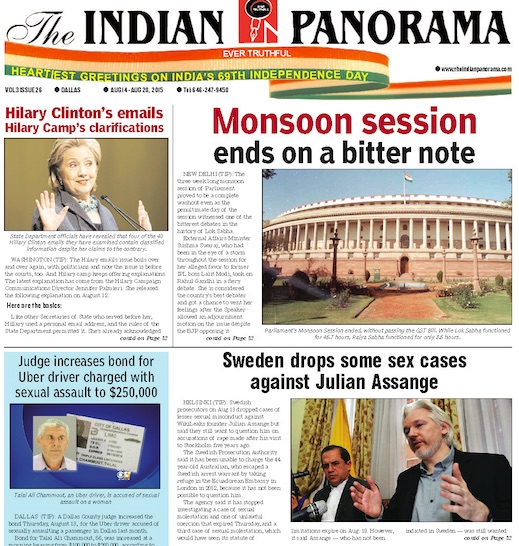
WASHINGTON: The US and Israel escalated their increasingly public spat on February 25 over Benjamin Netanyahu‘s Republican-engineered congressional speech next week, with the Israeli prime minister accusing world powers of rolling over to allow Tehran to develop nuclear weapons. Secretary of State John Kerry openly questioned Netanyahu’s judgment on the issue.
The comments injected new tension into an already strained relationship between the close allies ahead of Netanyahu’s address to Congress next Tuesday. More Democratic lawmakers announced they would boycott the speech, which was orchestrated by Republican leaders without the Obama administration’s knowledge.
Netanyahu hopes his speech will strengthen opposition to a potential nuclear deal with Iran, President Barack Obama‘s signature foreign policy objective. US and Iranian officials reported progress in negotiations this week on a deal that would clamp down on Tehran’s nuclear activities for at least 10 years but then slowly ease restrictions.
Netanyahu lashed out at the US and other usual staunch allies of Israel.
“It appears that they have given up on that commitment and are accepting that Iran will gradually, within a few years, will develop capabilities to produce material for many nuclear weapons,” he said in Israel.
“They might accept this but I am not willing to accept this,” he said in remarks delivered in Hebrew and translated. “I respect the White House, I respect the president of the United States, but in such a fateful matter that can determine if we exist or not, it is my duty to do everything to prevent this great danger to the state of Israel.”
Kerry, testifying in Congress, dismissed Netanyahu’s worries. He argued that a 2013 interim agreement with Iran that the prime minister also opposed had in fact made Israel safer by freezing key aspects of the Islamic republic’s nuclear program.
“He may have a judgment that just may not be correct here,” Kerry said.
His comments, as well as statements from other top US officials, made clear the Obama administration had no plans to mask its frustrations during Netanyahu’s visit.
In an interview Tuesday, National Security Adviser Susan Rice said plans for Netanyahu’s speech had “injected a degree of partisanship” into a US-Israel relationship that should be above politics. “It’s destructive to the fabric of the relationship,” Rice told the Charlie Rose show. “It’s always been bipartisan. We need to keep it that way.”
Netanyahu’s plans to speak to Congress have irritated many Democratic members, but also have put them in a difficult spot _ fearing they will look anti-Israel if they don’t attend. Still, a number of Democrats have said they plan to skip the session.
Senate Democrats invited Netanyahu to meet with them privately while he is in Washington, but the Israeli leader refused the invitation, saying such a meeting could “compound the misperception of partisanship” surrounding his visit.
“I regret that the invitation to address the special joint session of Congress has been perceived by some to be political or partisan,” Netanyahu wrote in a letter to Sens. Dick Durbin of Illinois and Dianne Feinstein of California. “I can assure you that my sole intention in accepting it was to voice Israel’s grave concerns” about a nuclear deal with Iran.
Iran insists its nuclear program is for peaceful purposes.
The White House has been weighing ways to counter Netanyahu’s address to Congress, as well as his separate speech to the annual policy conference of the American Israel Public Affairs Committee. The administration is considering whom to send to the conference, with some officials pushing for a lower-level representative than normal.





Be the first to comment